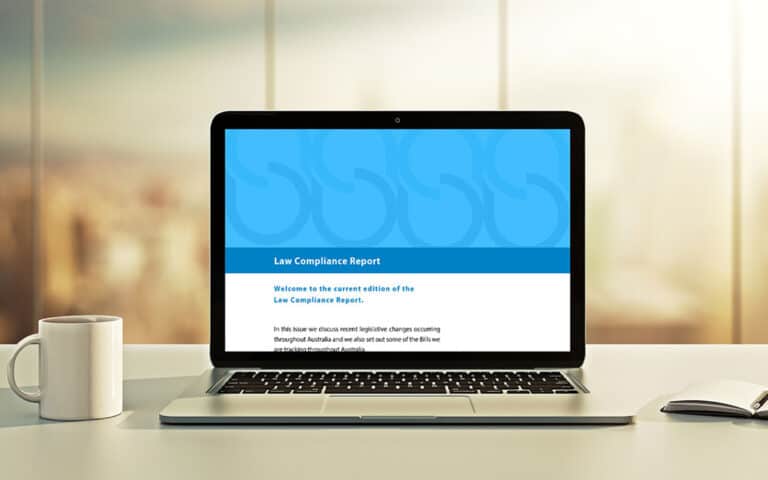This article applies to organisations that employ children.
Child Employment Amendment Bill 2022 (Vic)
Please be advised that the Child Employment Amendment Bill 2022 (Vic) (the Bill) passed the Victorian Parliament on 23 June 2022 and will commence on a date set by proclamation or 1 July 2023, whichever is the earlier date. The Bill amends the Child Employment Act 2003 (Vic) (the Act).
The purpose of the Bill is to protect children from performing work that could be harmful to their health, safety, wellbeing or development; or could prejudice their attendance at school or their capacity to benefit from instruction. The Bill will achieve this by extending the definition of ‘employment’ under the Act, increasing penalties for certain offences, and introducing a new child employment licensing system for the employment of children under the age of 15 years.
Meaning of Employment
Clause 6 of the Bill extends the definition of employment by substituting section 4 of the Act. Under substituted section 4, a child will be engaged in employment if:
- the child performs work under a contract of service or a contract for services (whether written or unwritten); or
- the child performs work, other than under a contract referred to in the first point, in a business, trade or occupation (whether or not the child receives payment or other reward for performing that work) for the benefit of the business; or a person involved in the business, trade or occupation; and the child is subject to directions about how their work is performed.
Non-profit organisations
Subscribers should note that clause 46 of the Bill will further amend the definition of employment under section 4 of the Act to capture non-profit organisations. The Bill will add a third point to the above definition as follows:
- the child performs work, other than under a contract referred to in the first point, in a non-profit organisation (whether or not the child receives payment or other reward for performing that work) for the benefit of the non-profit organisation; or a person involved in the non-for-profit organisation; and the child is subject to directions about how their work is performed.
This clause is drafted on the basis that the amendments in clause 6 have already commenced. The intention is to bring this amendment into operation after the amendments in clause 6 to give industry participants time to transition.
Record keeping
The Bill introduces new record keeping requirement for employers under the Act. Under new sections 18B(4) and (5), employers will be required to keep a written record of the name of any person who supervises a child in the course of the child’s employment and the number of any current WWC clearance for that person. The employer must also keep the written record for a period of 5 years after the person last supervised the child in the course of the child’s employment or any other prescribed period.
Increased penalties
The Bill will increase the penalties for the following offences under the Act:
- Section 9: Employing a child without a permit
- Section 10: Employing a child who is below the minimum age for employment
- Section 11: Employing a child during school hours on any school day
- Section 12 Employing a child in a prohibited employment manner
- Section 19: Supervision of children in employment
- Section 23: Condition of employment
Presently, a breach of the above provisions carries a penalty of 100 penalty units (currently $18,174) in the case of a body corporate, or 60 penalty units (currently $10,904.40) in any other case. The Bill significantly increases these penalties to 1200 penalty units (currently $218,088) in the case of a body corporate, or a 240 penalty units (currently $43,617.60) in any other case.
Employer representatives and nominated officers
The Bill substitutes Part 3 of the Act, creating new offences for employer representatives and nominated officers.
A nominated officer for a licence holder can be held liable if the person knowingly engaged in conduct that would constitute a contravention of sections 10, 11 or 12 of the Act (as above).
Additionally, both an employer representative or a nominated officer for a licence holder can be held liable if the person knowingly engaged in conduct that would constitute a contravention of sections 19 and 23 of the Act (as above).
These offences under Part 3 of the Act carry a penalty ranging from 120 penalty units (currently $21,808.80) to 240 penalty units (currently $43,617.60).
Employer representative, for an applicant or a licence holder, means a person who is nominated in relation to the licence under section 13(4) or 18AE(3)(d) of the Act.
Nominated officer, for an applicant or a licence holder, means a person who is nominated in relation to the licence under section 13(3) or 18AE(3)(c) of the Act.
Licensing requirements
The Bill will replace the permit system for the employment of children under the age of 15 years with a new requirement for the organisation to be licenced.
Most notably, an applicant is required to satisfy the Wage Inspectorate Victoria that the applicant is a ‘fit and proper person’ to be granted a licence. This appraisal will consider the applicant’s history of compliance with child employment laws and other workplace laws.
Should a licence be granted to an employer, various conditions set by the Wage Inspectorate Victoria will attach to the licence. The penalty for a breach of a licence condition is 240 penalty units (currently $43,617.60) in the case of a body corporate.
Finally, subscribers should note that the duration of a licence will not extend beyond two years; however, applicants will be able to apply for renewal of a licence.




